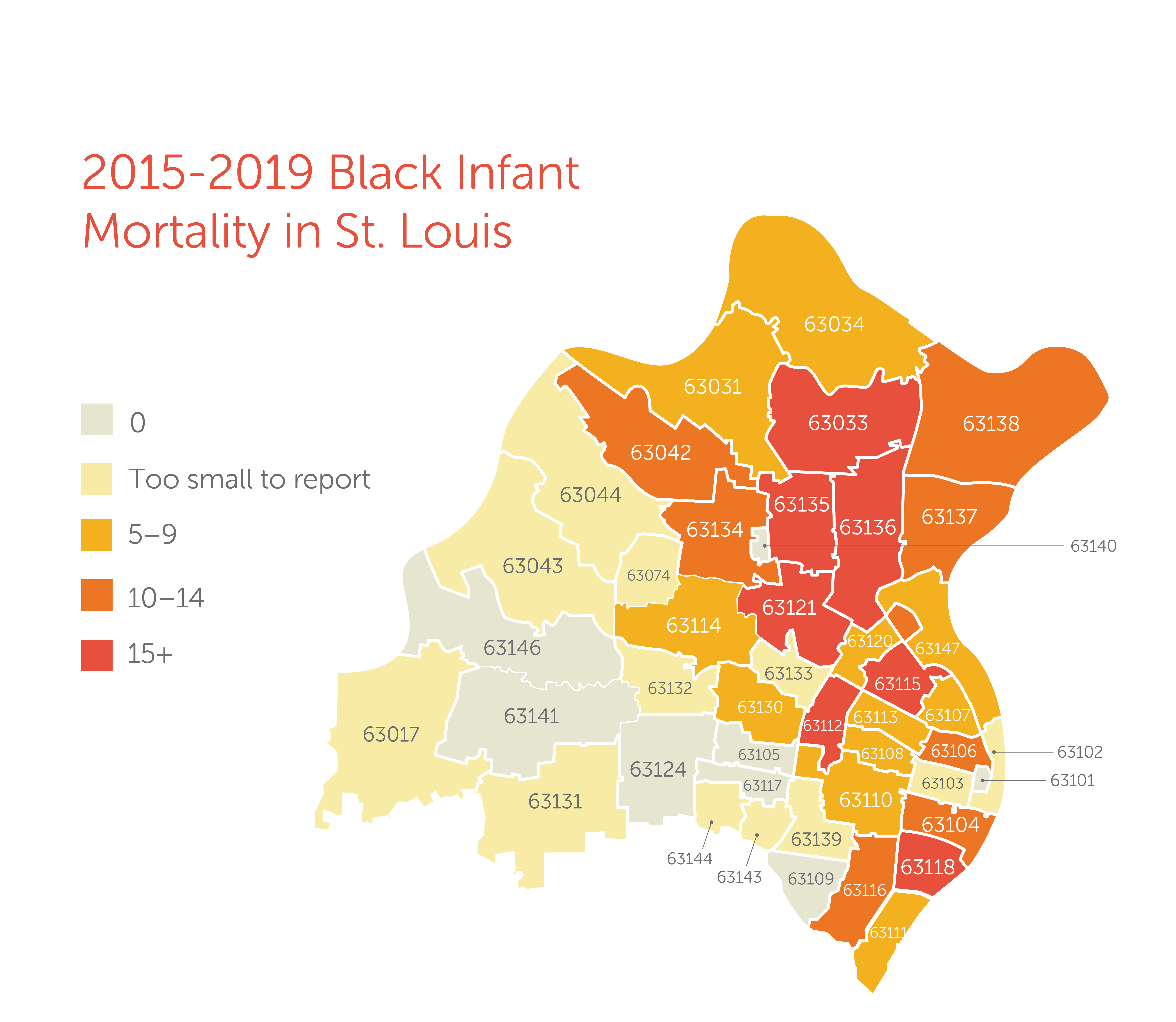We know that, locally and globally, communities with strong infant health policies and practices are stronger and more successful from both a social and economic standpoint.
Impact of Infant Deaths in St. Louis
High rates of infant death and preterm birth of Black babies born in St. Louis can be linked to some of the region’s greatest challenges – including systemic racism, poverty and economic hardship.
Every baby’s death is a loss for their family and for the entire community. Every year, the number of babies St. Louis loses could have made up 12 kindergarten classrooms – and Black infants would have made up 8 of those classrooms.
The medical costs of caring for a preterm infant are extremely high. Each year, premature birth costs Missouri taxpayers $180 million in immediate and short-term costs. Think of what our region could do with $180 million.
Being born too early can cause later health and development issues for babies over the course of their life. Premature babies are more likely to experience chronic health issues, intellectual and developmental disabilities.

